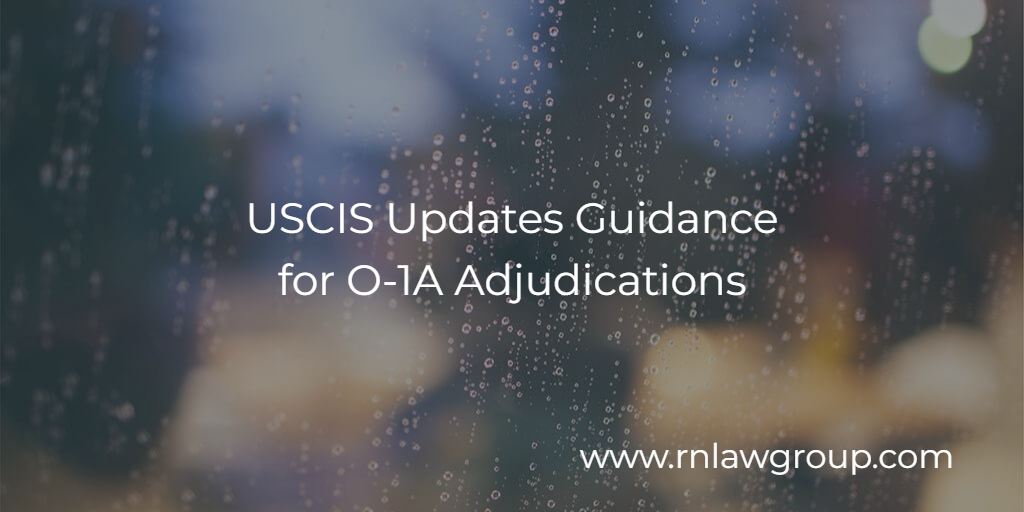
USCIS Updates Guidance for O-1A Adjudications
On March 23rd, USCIS issued a policy alert regarding new guidance on the adjudication of O-1A petitions. The O-1A visa is typically reserved for individuals with extraordinary ability in the sciences, education, business, or athletics. It does not include the arts, motion picture or TV industry. Those categories would fall under the O-1B visa. The bar for an O-1A visa is quite high as the visa is reserved for those who are in the small percentages who have arisen to the very top of their field. Supporting documentation for the O-1A must include proof the Beneficiary received a major internationally recognized award or at least three of the following forms of evidence:
- Documentation of the beneficiary’s receipt of nationally or internationally recognized prizes or awards for excellence in the field of endeavor;
- Documentation of the beneficiary’s membership in associations in the field for which classification is sought, which require outstanding achievements of their members, as judged by recognized national or international experts in their disciplines or fields;
- Published material in professional or major trade publications or major media about the beneficiary, relating to the beneficiary’s work in the field for which classification is sought, which must include the title, date, and author of such published material, and any necessary translation;
- Evidence of the beneficiary’s participation on a panel, or individually, as a judge of the work of others in the same or in an allied field of specialization for which classification is sought;
- Evidence of the beneficiary’s original scientific, scholarly, or business-related contributions of major significance in the field;
- Evidence of the beneficiary’s authorship of scholarly articles in the field, in professional journals, or other major media;
- Evidence that the beneficiary has been employed in a critical or essential capacity for organizations and establishments that have a distinguished reputation; or
- Evidence that the beneficiary has either commanded a high salary or will command a high salary or other remuneration for services, as evidenced by contracts or other reliable evidence.
The policy alert clarifies that for the extraordinary ability and outstanding professor or research classification, “published material” about the person or person’s work in professional or major trade publications or other major media does not need to be a printed article. This will expand the type of evidence allowed to include transcripts of audio and even video coverage. The development creates new avenues for evidence to be submitted outside of traditional printed articles and should make it easier for a Beneficiary to gather “published material” for submission to USCIS.
Additionally, the policy update states a person may satisfy the leading or critical role criterion through a qualifying role for a distinguished department or division, in addition to an entire organization or establishment. Similar to the expansion of the published material section, this loosening of the evidentiary requirement should make it easier for a Beneficiary to gather evidence needed to qualify in the event they do now possess any major internationally recognized awards. Even with these beneficial changes qualifying for an O-1A visa is still a difficult task. Anyone who believes they may qualify should consult with a licensed immigration attorney and be prepared to supply a litany of evidence to USCIS along with their petition.
By: Staff Attorney
